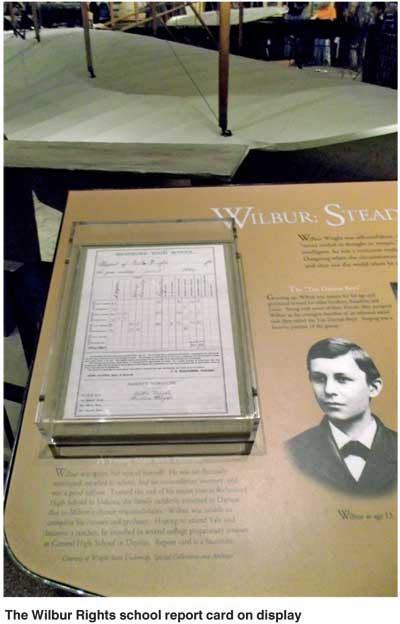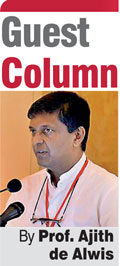Sunday Feb 15, 2026
Sunday Feb 15, 2026
Thursday, 22 December 2016 00:00 - - {{hitsCtrl.values.hits}}
Today we do have to ask some questions quite seriously from ourselves and others. What exactly are our goals that we have accepted and are supporting?
In Public Administration is it sacred conformance to circulars – mostly quite outdated – in the name of discipline or in avoiding extra work? In private businesses is it profit centric from all activities? In investment is it ROI above anything else? In planning and execution what is finally driving decision making – financial returns? In public procurement is it lowest cost which will win above anything else? In decision making with analysis what comes to the mind usually when starting closer scrutiny of a proposal – national development, institutional development or in toeing party political lines or intentions? 
Do we measure our success at times by counting and observing the failures of others? This set of questions can be expanded and you can start answering. Sadly you may find the answers correct and applicable in today’s context are all the ‘wrong’ answers to the above set of questions.
It was Francis Bacon who said that money is a good servant but a bad master! How true. We want to see or realise money from anything and everything we do. All our decisions usually are made with financial returns as the key decision maker. All investment decisions are grounded on ROI and it is not a secret that hurdle rates are not the easiest and there are no compromises made if a project cannot meet the value in analysis. It is the rate that matters and not anything else. Basing our purpose of existence on cash flow and net worth has reduced the humanity in us to a set of numbers and paved the way for a simple algorithm to take decisions on behalf of us.
Traffic and heart attacks
We have seen reports of tripling risk of heart attacks for those who have to endure heavy traffic. As we usually do not have time to do this type of research, probably also due to time consumed, getting caught to traffic on all seven days of the week now in our cities and even in long distance drives I have to quote studies from elsewhere.
It is alarming to note that analysis of the data had shown that these heart attack-vulnerable people to be 3.2 times more likely to suffer a heart attack if they’d been in heavy traffic in the previous hour. This is from a study involving 1,454 people who have survived a heart attack. Colombo can really do with a solution to traffic and perhaps all other cities.
Apart from the health risk that this may be contributing to quite unsuspecting people, there is significant negative impact on the economy too. As an expert on transportation once remarked all our efforts in resolving the situation hinges on expensive solutions. Improving public transport, be it rail or bus, receive not much attention.
Can we have a transport mechanism that perhaps regularly circles or directionally moves at zero cost to passengers? I am posing this very well knowing that my knowledge on transport planning being equivalent only to the interest that I have in going places with minimum of discomfort and with the lowest risk of a heart attack!
Maybe the capitalism and the economic principles that we pursue indicates that such free services are not possible as there are costs involved both in capital and in recurrent in maintaining such services. Yes the latter is definitely true. However, if we somehow manage to overcome that aspect, the availability of a regular free service with a guarantee may mean lot less traffic jams that may arise from each one taking their own modes of transport.
Washington DC and Manchester
In the heart of capitalism, Washington DC suburbs, it is possible to witness and feel the presence of free public transport. The availability of this may mean at regular intervals in both directions that people will opt in to use this and different sector of the economy may actually grow overcoming the sunk cost to this free good. Maybe the theory of economics has a better term for this concept.
You walk into another busy city centre such as Manchester and there again you see the free city bus. With high demand and fixed supply the price point is free! Quite interesting. There should be many examples of this nature where the solution to traffic had been reduced or tackled via a ‘free’ solution.
Can one visualise the same scenario for Colombo or Kandy? Each individual who wants to own and make a return from a three wheeler, mini bus or a large bus will be up-in-arms. Even leasing companies too will see their cash cows becoming affected. Then it will be the turn of the politician who looks at the ‘number of votes’ and not the development opportunity. We are today known to strike openly and in numbers requesting approval to do wrong! We do indeed live in strange times.
Knowledge freely available
Another similar example that comes to my mind is again from the very heart of capitalism. The prime land on either side of Pennsylvania Avenue is occupied by lots of museums and there is no shortage of people visiting those. These mammoth structures and strong educational establishments are open to all and are free! The return on these investments come from an enlightened citizenry as they grow and also as parents they will age gracefully too perhaps as knowledge is available free and with fantastically packaged. The running costs come from philanthropy and state grants.
When we planned a Science Centre for Colombo, the first question was to submit the business model and the first line of entry had to be the income from the sale of tickets. Still the struggle for a piece of land is going on. Colombo is still the city even in this part of subcontinent without a Science Centre or a Science Museum. The financial calculations and the business model reign supreme over all the potential benefits the society is going to have by having at least one such centre. Money indeed has become the master of all ceremonies.
Curitiba
One excellent example that we all can refer to is the Brazilian City of Curitiba and its famous ex-mayor Dr. Jamie Lerner. His transformation of the city to be an award winning sustainable city is well known. However, details do matter.
Though his work is well known with the transportation solution that he conjured up, what he did with solid waste and recycling are important too. When the green space in city generated lots of vegetables fruits, etc., he initiated the green exchange.
Lerner implemented the original idea of giving people free bus tickets and locally produced fruits and vegetables when they collected waste and garbage from the city’s streets; they could trade their recycling credits according to the amount of waste they had collected. Recycling went up, solid waste disappeared, public transport picked up and nutritional levels too improved. I am quite sure he did not calculate ROIs in developing this plan but as per his comments placed people first over economics. He knew the merits of the innovative approach and believed in its potential.
The transformation was world class. This being a city of two million people sends us a strong message. There were no fancy elevated or underground transport systems but buses suitably designed and improved serving the masses. Yes, the direct cut and paste of that master plan is impractical but there are many lessons to learn both in technology and in people management.
Learner did not allow the money to do all the talking and that was a key factor in this successful transformation. The key lesson from Lerner is boosting the use of public transport and cleaning up the city at the same time – which we can very well take up! Both garbage and traffic is haunting our cities in real time. Some sanity needs to be infused to all our minds as we pursue our happiness via cash flows and cheap consumerism where the useful servant has been transformed into a monstrous master.